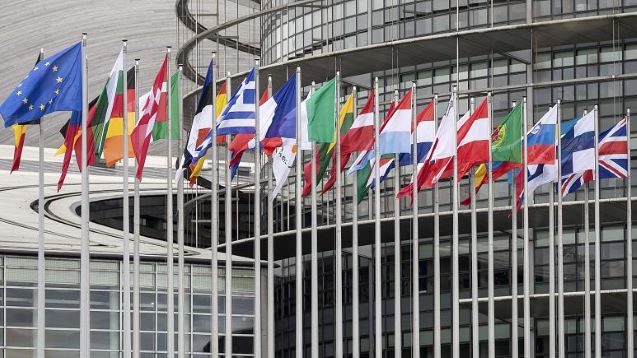After months of setbacks and difficult negotiations between the EU Council and the European Parliament, environment ministers voted today in Luxembourg to pass the Nature Restoration Law.
Environment ministers meeting in Luxembourg today (June 17) adopted the Nature Restoration Law after months of difficult negotiations between the co-legislators, with Austria clearing a long-standing deadlock following a last-minute change of heart.
Belgium scheduled today’s public debate on the blocked biodiversity legislation – proposed in 2022 – intended to reverse decades of ecosystem degradation, after failing to break a deadlock during back-room diplomatic talks last week.
The European Parliament had adopted the legislation, which requires environmental restoration work to begin on a fifth of land and sea by 2030 and sets long-term targets for returning specific ecosystems to health, following an informal agreement last November with the EU Council of Ministers.
But what was supposed to be a final rubber stamp from the legislative body that represents national governments in Brussels was being blocked by a handful of countries who reneged on the so-called ‘trilogue’ agreement.
Austria, Belgium, Finland, Italy, the Netherlands, Poland, Sweden and, after a controversial last-minute U-turn, Hungary, all originally signalled they intended to either abstain or oppose the law if it is put to the vote – in practical terms, there is no difference. But just one flip would enable law would pass, and Austria duly obliged.
“This law is pivotal to combat climate change. We need to ensure legal certainty for people using soil and land. We asked member states to give the possibility to work on various points on how to implement it,” Austrian climate minister Leonor Gewessler said during the debate.
She noted that the Alpine state would need as a result to amend national provisions, flagging two of the country’s states – Vienna and Carinthia – have indicated support for the law, despite originally opposing it.
However, Austrian federal chancellor Karl Nehammer issued an official note on Sunday urging Gewessler “not to give her consent” to the Nature Restoration Law, saying the Austrian climate minister is “not entitled to commit” the country in such regard.
EU countries rejecting the law cited concerns linked to the farming sector, environmental and sustainability standards and implementation costs.
“We are far from satisfied, we cannot accept that we are increasing the economic and administrative burden on the agricultural sector,” said Italian vice-minister Vannia Gava.
Despite recognising the need to reverse biodiversity damage, Finland mainly rejected the law’s implementation costs.
“If the law is to be passed today, I stress that we all need to work hard to ensure a cost-effective and balanced implementation and hope the European Commission will work accordingly,” said Kai Mykkänen, Finnish environment minister.
“Let’s put ideology behind us and get to work all together. The time for political and ideological discussion is over now let’s get on with the job,” said Virginijus Sinkevičius, commissioner for the environment, oceans and fisheries.__Courtesy EuroNews





